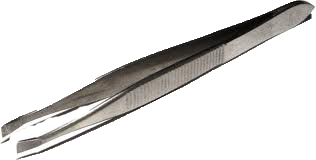Paging Dr. Mom to the O.R.
I’ve performed my first successful surgery, and the patient is recovering nicely. I didn’t want to operate but I was the only one here when 8-year-old Jack ran his hand along the wooden banister and got a splinter in his finger. Tears and wailing started immediately after.
I knew the dramatic reaction wasn’t about the tiny sliver of wood lodged under the skin. It was about the fear, the panic, the dread of getting it out. I knew this because I’m the same way and always have been, which makes me wonder if phobias are as hereditary as eye color. If I had to choose between a splinter and a spider, I’d take my chances with the creepy crawler.
At our house, Tom is the official splinter surgeon because he’s less squeamish, but he was away on business which left me on-call for splinter emergencies. I did my best to appear cool and calm so I could talk Jack out of a full-blown panic attack. He didn’t want me to touch it, he said. Didn’t want me to get too close to it in case I accidentally touched it, he said. He was caught between the proverbial rock and a splintery place. His finger hurt because of the splinter and removing the splinter would hurt, too. What’s a kid and his splinter-phobic mother to do?
 I gathered the surgical instruments – peroxide, tweezers and a flashlight – and explained the possible courses of treatment to the petrified patient.
I gathered the surgical instruments – peroxide, tweezers and a flashlight – and explained the possible courses of treatment to the petrified patient.
“Listen, you’ve got some options here. Number One: You leave the splinter in there and your finger keeps hurting and might get infected. Number Two: You take this pair of tweezers and take out the splinter yourself. Number Three: You let me take out the splinter. What’s it going to be?”
The patient refused all three courses of treatment, opting instead for dramatic 8-year-old angst. I needed to get creative.
“Okay, let’s try this idea. Let me rub some ointment on your finger that will help make it numb, and then you won’t even feel it when the splinter comes out,” I proposed.
“I won’t even feel it?” he asked, hopeful that such an option existed.
“That’s the plan,” I said, hopeful the idea would either work or I’d get the splinter out before he realized it wasn’t working.
With the patient’s consent, I rummaged through the medicine cabinet until I found an old tube of Anbesol I’d once used on a teething baby. I rubbed the amber-colored gel onto the afflicted finger and waited a few minutes.
“Okay, it should be numb now, so let’s take out the splinter,” I said to the patient. “You hold the flashlight and I’ll hold the tweezers.” We both took a deep breath and held it while I grabbed onto the offending splinter and yanked.
“Yes!” I said, holding up the tweezers in victory. “I got it!”
Then there was celebrating and dancing around the kitchen island operating room because the procedure was a success and the patient was alive! For an hour or so afterward, the patient regarded me as a genius and a hero. And I enjoyed the accolades because a mother has to take her pats on the back wherever she can get them.
The operation made me realize the worst part of any unpleasant job is the time that comes before it. Dread makes the task (and the splinter) far bigger than they actually are.
Perhaps the best medicine is to tell ourselves it won’t hurt (much) and then “grip it and rip it.” Relief waits on the other side of courage.
# # #
